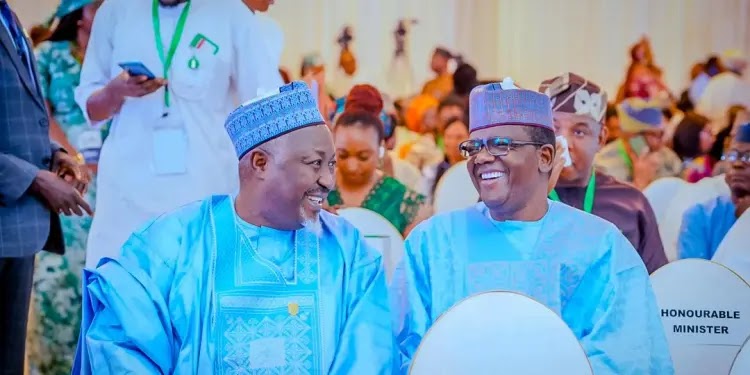LAGOS — Nigeria’s Minister of Defence, Mohammed Abubakar, has urged African governments to adopt a unified and technologically driven strategy to address the continent’s growing and increasingly complex security challenges.
Speaking at the Fourth African Air Forces Forum, held at the Eko Hotel and Suites in Lagos, Abubakar called for continent-wide coordination, particularly in aerospace operations, to confront emerging transnational threats such as terrorism, arms trafficking, piracy, and maritime crime.
“The threat landscape now includes not only terrorism but also drug and arms trafficking, piracy, and illegal fishing, all of which jeopardised peace, prosperity, and maritime stability,” he said.
The forum, themed “Strengthening Collaborations to Advance Aerospace Technologies for Enhanced National and International Security,” convened defence officials, air force commanders, and aerospace professionals from across Africa and allied nations.
Abubakar stressed that security threats in the region have outpaced traditional defence mechanisms and now require real-time intelligence, cross-border cooperation, and cutting-edge aerospace technologies.
He pointed to the increasing relevance of unmanned aerial vehicles, secure communications, and cyber defence systems in modern security frameworks and argued that these assets must become central in future military planning across the continent.
“Our ability to harness advanced aerospace technologies will determine our effectiveness in securing national and regional interests,” he said.
Highlighting the role of air power in intelligence collection, surveillance, and rapid deployment, Abubakar also emphasised the need for better coordination between air and naval forces to safeguard Africa’s maritime domain.
He praised President Bola Tinubu’s administration for ongoing efforts to modernise the Nigerian Air Force, including recent investments in air mobility, surveillance platforms, and reconnaissance capabilities.
Beyond hardware, the defence minister stressed that intergovernmental collaboration built on trust and shared responsibility was just as important as technological innovation.
“Our strategy must be comprehensive, balancing strength with equity, and technology with human dignity,” Abubakar said, while noting that “sustainable peace hinges on good governance, economic development, and social justice.”
He concluded by acknowledging President Tinubu’s support for defence sector reforms and regional cooperation efforts, commending what he described as the president’s transparent commitment to both national and continental security.



